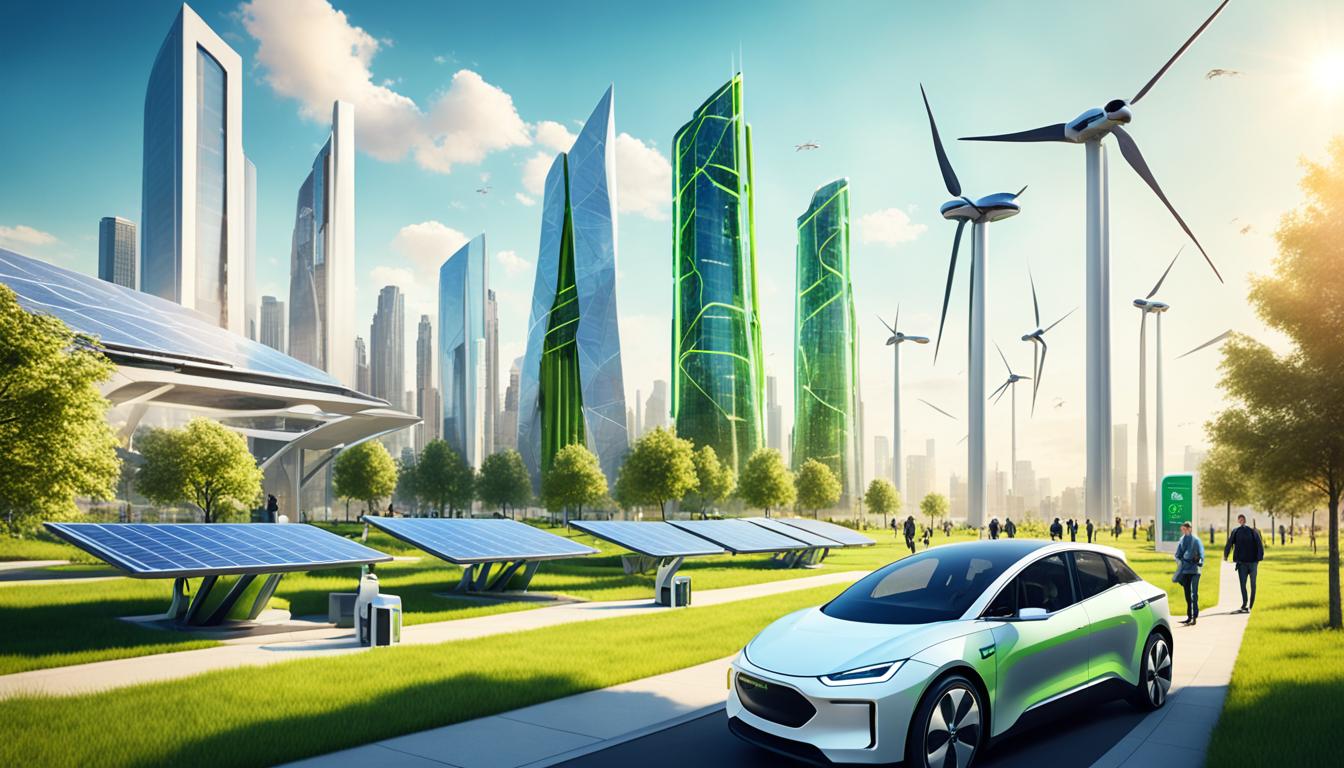
Artificial intelligence, or AI, is changing industries and helping fight climate change. It’s doing this by cutting down on carbon footprints. Microsoft’s AI-powered Bing, Google’s Bard, and OpenAI’s GPT-4 are examples. They show how AI could change our fight against global warming.
AI helps in many ways. It can study climate patterns, create green materials, and manage clean energy. It can also find methane leaks, watch the environment, improve farming, and make data centers use less energy. These AI uses can really help reduce our carbon footprints and make a cleaner future.
But, there’s a downside to AI – it uses a lot of energy, especially in data centers. Data centers, running all the time, add a lot to global emissions. Training big AI models can also release a lot of CO2 and use plenty of electricity.
Even with these issues, AI’s potential to cut carbon footprints is too significant to ignore. Work is ongoing to make AI greener. This includes making systems that use less energy. This way, AI can have a positive impact without harming the planet.
Key Takeaways:
- AI is revolutionizing various industries and has the potential to combat climate change.
- Large language models enable AI to analyze climate variables, design eco-friendly materials, and optimize renewable energy sources.
- Data centers, an essential part of AI infrastructure, contribute significantly to global greenhouse gas emissions.
- Efforts are being made to make AI systems more energy-efficient and reduce their environmental impact.
- Despite challenges, AI’s potential for reducing carbon footprints is immense and can contribute to a greener future.
AI’s Impact on Decarbonisation Efforts
Artificial intelligence (AI) is key in making industries greener. It helps businesses lower their CO2 emissions for a better future.
In the industrial goods sector, AI can make production cleaner and cheaper. It analyzes data, finds inefficiency, and suggests energy-saving fixes.
In transportation, AI improves route planning and fleet management. This cuts down fuel use. It looks at traffic and real data to find the best paths, lowering CO2 emissions.
AI-driven autonomous vehicles can reduce emissions from cars and trucks. They pick smarter drive ways, ease traffic jams, and save on fuel. This cuts down harmful gases from transport.
The pharma sector gains from AI in cutting carbon too. AI systems predict equipment issues early, maintaining energy efficiency. This stops energy waste and keeps operations smooth.
AI also makes supply chains more eco-friendly. It chooses better transport paths to lower carbon tracks. Plus, AI helps keep stock lean, using fewer resources and cutting packaging trash.
In energy and utilities, AI is vital for green power. It analyzes different data to better manage and use renewables. This lessens the need for fossil fuels and drops CO2 releases.
With AI, companies can shrink their environmental footprints and meet eco goals. AI enables big eco improvements across industries, leading to a greener future.

Harnessing AI’s Potential for Sustainable Transformation
AI helps companies track, predict, and reduce carbon emissions. It uses data to monitor emissions across operations. This includes gathering info from different parts of the business. With AI, companies can know their emissions better and plan to reduce them.
AI gives deep insights into the value chain, enhancing efficiency and cutting emissions. Industries like steel and oil have seen big benefits from AI. They have reduced emissions and saved money. Companies should focus on high-emission areas to get the most from AI.
There are also moves to lessen the carbon footprint of AI itself. Projects like CodeCarbon work to lower emissions from AI systems. By using AI, businesses can speed up sustainable change. This leads to a healthier planet.
FAQ
How does AI help in reducing carbon footprints?
Which industries can benefit from AI’s impact on decarbonisation efforts?
How can AI contribute to sustainable transformation and reduce carbon emissions?
Source Links
- https://news.climate.columbia.edu/2023/06/09/ais-growing-carbon-footprint/
- https://www.bcg.com/publications/2021/ai-to-reduce-carbon-emissions
- https://www.equans.com/news/how-artificial-intelligence-is-driving-decarbonisation






